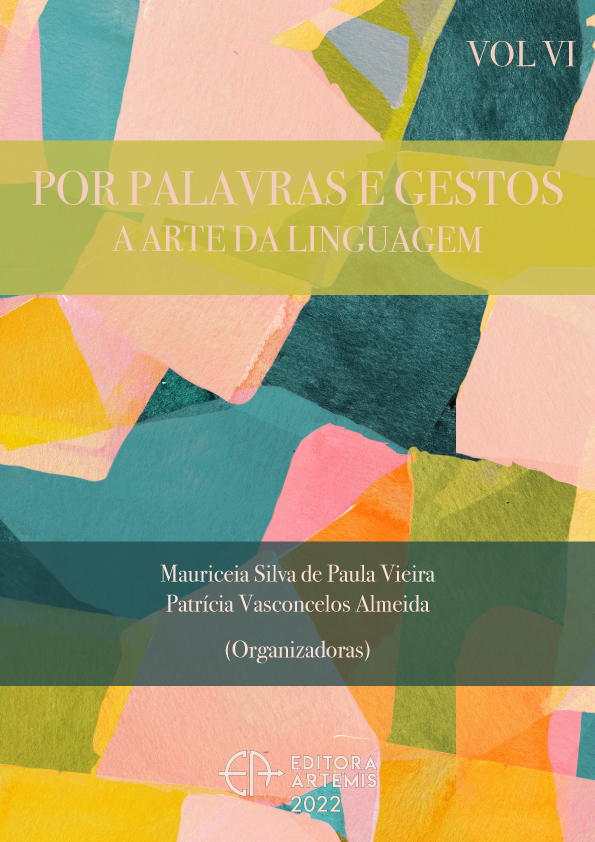
ESPAÇOS DO EXÍLIO EM A COSTA DOS MURMÚRIOS E A ÁRVORE DAS PALAVRAS
Este texto tem por objetivo analisar a relação do espaço e a condição de exílio nas obras literárias A árvore das palavras (2004), de Teolinda Gersão, e A costa dos murmúrios (2004), de Lídia Jorge. Propomos averiguar a situação das personagens que viviam o momento da Guerra Colonial em Moçambique (1964-1974) e encontravam-se distantes de Portugal. De acordo com Edward Said (2003), o exílio “é uma fratura incurável entre um ser humano e um lugar natal, entre o eu e seu verdadeiro lar: sua tristeza essencial jamais pode ser superada” (2003, p. 46). Essa reflexão conduz a abordagem crítica da condição de exílio, vivida pelas personagens Gita e Evita, ambas distantes de seus lares. Dessa forma, através da memória, pode-se voltar à terra natal, enquanto se vive em outro país. Essa condição nos faz lembrar o que diz Gaston Bachelard (2008), teórico do espaço: “a casa é o nosso canto do mundo. Ela é, como se diz amiúde, o nosso primeiro universo” (2008, p. 24). Para a construção deste artigo, utilizamos pesquisa bibliográfica e qualitativa aplicada à análise das obras literárias supracitadas. Como pressupostos teóricos referentes à memória, utilizamos Maurice Halbwachs (2003), sobre o exílio, Edward Said (2003), e os teóricos do espaço literário Yi-Fu Tuan (1983) e Gaston Bachelard (2008). Nas obras analisadas, foi possível percebermos que o espaço aparece como um grande articulador da história, já que o olhar das personagens revela maior pertencimento ao lugar de origem. Além disso, concluímos que a relação do exilio através do espaço é uma projeção social, compreendida através de alguns espaços narrativos que mostram a própria divisão da sociedade moçambicana.
ESPAÇOS DO EXÍLIO EM A COSTA DOS MURMÚRIOS E A ÁRVORE DAS PALAVRAS
-
DOI: 10.37572/EdArt_25082261310
-
Palavras-chave: Espaço. Exílio. Teolinda Gersão. Lídia Jorge.
-
Keywords: Space. Exile. Teolinda Gersão. Lídia Jorge.
-
Abstract:
This text aims to analyze the relationship between space and the exile condition within the literary works A árvore das Palavras (2004), by Teolinda Gersão, and A costa dos murmúrios (2004), by Lídia Jorge. It is proposed by us to investigate the situation of the characters who lived during the Colonial War in Mozambique (1964-1974) and were far from Portugal. According to Edward Said (2003), exile “is an incurable fracture between a human being and its homeland, between the self and its true home. Its essential sadness can never be overcome” (2003, p. 46). This reflection leads us to a critical approach of the exile condition experienced by the characters Gita and Evita, both far from their homes. Therefore, someone can return to its homeland through memory while living in another country. This condition reminds us of what Gaston Bachelard (2008), a scholar of space says: “the house is our corner of the world. It is often said that it is our first universe” (2008, p. 24). It was applied by us to analyze the aforementioned literary works a bibliographic and qualitative research in order to fabricate this article. The following scholars were used as theoretical foundation: Maurice Halbwachs (2003) regarding memory, Edward Said (2003) regarding exile, and Yi-Fu Tuan (1983) and Gaston Bachelard (2008) regarding literary space. It was possible to perceive in the works analyzed that space appears as a huge story articulator, inasmuch as the characters’s look reveals a greater belonging to the origin place. Furthermore, we conclude that the relationship of exile via space is a social projection, understood through and in some narrative spaces that show the very fission of Mozambican society.
-
Número de páginas: 13
- Joseane Mendes Ferreira
- Cristianne Silva Araújo
- Joelma de Araújo Silva Resende
- Raimunda Maria dos Santos

